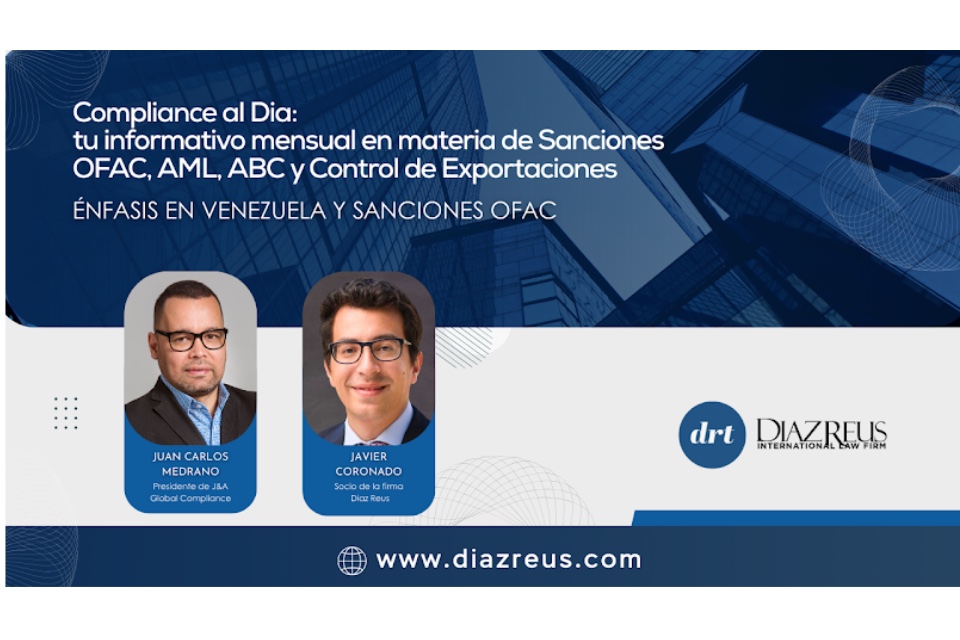Law360, New York (February 22, 2016, 3:43 PM ET) —
The United States Census Bureau estimates that 400,000 new businesses are established, nationwide, each year. This year, among that large number is a small Alabama startup. In a historic deal approved by the U.S. government, the two-man, Alabama-based company, Oggun, is expected to build a multimillion dollar agricultural equipment assembly plant in Cuba and be selling tractors to Cuban farmers as early as 2017. The deal puts the first U.S. factory on Cuban soil since the 1962 U.S. trade embargo, and creates a sense of irreversible and perhaps unstoppable momentum in the changing relationship between the two countries. This is also welcome news for other companies with their sights set on opportunities in Cuba.
Behind the Big Deal
Prior to the 1962 embargo, which followed the Cuban Revolution of 1956-58, the U.S. and Cuba were agricultural trade partners. The United States Department of Agriculture estimates that U.S. agricultural exports to Cuba during fiscal years 1956-58 would now have an approximate annual average value of $600 million at current commodity prices, while agricultural imports from Cuba would be worth $2.2 billion. But since the 1962 trade embargo and the subsequent Helms-Burton Act of 1996, which strengthened the embargo, agricultural imports from Cuba to the U.S. remain at zero.
Fast forward to December 2014, when U.S. President Barak Obama and Cuban President Raul Castro announced their intent to restore diplomatic relations between the two countries. President Obama then proceed to sign a series of executive actions during 2015 that would update the U.S. approach to Cuba and restore some bilateral trade outside of the conditions set forth in the Helms-Burton Act of 1996, which would require an act of Congress to repeal.
Among key provisions in one of the administration’s executive actions is a short list of additional exemptions to U.S. exports to Cuba; in particular, “certain building materials for private residential construction, goods for use by entrepreneurs in the Cuban private sector and agricultural equipment for small farmers” — as long as the end users of such equipment are private farmers and nongovernmental cooperatives. It is this loophole, created by executive order, that has allowed the Oggun deal to go through. For the project’s first three years, the company will export components from the U.S. for assembly in their facility in Cuba, selling only to private farmers.
Building in Cuba
The Alabama-based company recently announced that it will invest up to $10 million to launch their enterprise in a Cuban special economic free zone, which was established by the Cuban government to encourage new foreign investment in the country. The company plans to produce as many as 1,000 tractors a year for sale in Cuba. The tractors will be smaller than industrial-size machines; affordable and designed to accommodate different attachments for varying needs of small-time farmers. The company projects that its distribution will expand to include other Latin American countries, in time.
Such an enterprise would have been unimaginable prior to 2014. And although U.S. companies in general may have to wait for a full repeal of the Helms-Burton Act, the chipping away at sanctions suggests that more may follow. Interested companies should prepare.
Foremost, U.S. companies and investors looking toward Cuba for growth and profit should be prepared for uncharted territory. For example, the biggest beneficiary of the new tractor factory may not be Oggun, but rather the Cuban economy. Obviously the development will have an impact on small Cuban farmers — which Oggun has stated as their purpose and goal — but it will also bring new technology and employment opportunities for the local population. As a result, Cuban officials, who are eager to prop up their economy, have enthusiastically endorsed the tractor manufacturing project, and ultimately, such government endorsement will be necessary for each such endeavor in or with Cuba.
Cuban Business Environment
Starting a business in Cuba will definitely require thorough due diligence and careful consideration of all commercial and legal factors. Companies should first evaluate any existing restrictions, notwithstanding the continued application of the U.S. embargo, along with legal risks that can be a hurdle for investing in Cuba. Moreover, a threshold consideration will be the local laws and regulations in Cuba. In this regard, it should be noted that the current legal system in Cuba is not yet well-defined and tested, at least not by U.S. standards, and dispute resolution may be murky. Therefore, before “breaking ground” it is important to seek legal advice on the local regulations regarding such items as building permits, licenses, registrations, subcontractor agreements and other approvals.
Additionally, thorough awareness about the environmental regulations that impact the business arrangement will be critical. For example, restrictions on the disposal of solid and other wastes, air quality, etc. can be fairly stringent and can have a significant impact on how the business opportunity is sized and formulated.
Other considerations will be to evaluate whether there are any incentives for conducting business in Cuba, such as tax incentives, reduction in fees, etc. Is there a limitation on imports or exports? And then, there is the protection of one’s intellectual property. Suffice it to say that the turbulent history of trademark rights between the two countries is well documented.
Finally, it is no secret that Transparency International ranks Cuba as the 63rd most corrupt country out of the 175 countries it ranks, and therefore, the risk of a U.S. Foreign Corrupt Practices Act violation is not inconsequential. Given that the vast majority of infrastructure in Cuba is government-owned, U.S. companies wishing to do business in Cuba may eventually have considerable exposure to FCPA liability arising out of conducting business there.
Culture and Language
Once familiarity with Cuban laws, complemented with appropriate legal advice, is sought, then it is time to address pragmatic issues such as language and cultural barriers. Issues of language and culture, in particular, can affect U.S. companies that may not be familiar with the local customs and practices. Being able to easily converse with the local population will make launching a venture much more straightforward. Thus, it will be paramount to retain bilingual counsel who, in addition to providing legal advice, will also have practical experience in dealing with the local authorities.
Finally, setting up a factory, for example, usually involves a lengthy process and would require practical acumen, and ideally, local contacts to deal with the Cuban government in order to start the production in Cuba.
The Future in Cuba Seems Brighter Now
The new orders passed by the Obama administration in January and September 2015 have expanded on previous executive actions in telecommunications, remittances and travel, while creating new areas of investment in banking and supporting the Cuban people and the country’s independent and growing private sector. This is in addition to the Trade Sanctions Reform and Export Enhancement Act exemption that lifted restrictions on U.S. food, agricultural products and medicine exports to Cuba in 2000.
However, the establishment of a tractor plant in Cuba is indeed the first significant U.S. business investment on Cuban soil since 1959, and may be just the beginning. It is expected to open a floodgate of select opportunities in the years to come, making the future look brighter.
—By Chad S. Purdie, Diaz Reus & Targ LLP
Chad Purdie is head partner of Diaz Reus’ Los Angeles office.
(Original Content Found Here | Subscription Required)













